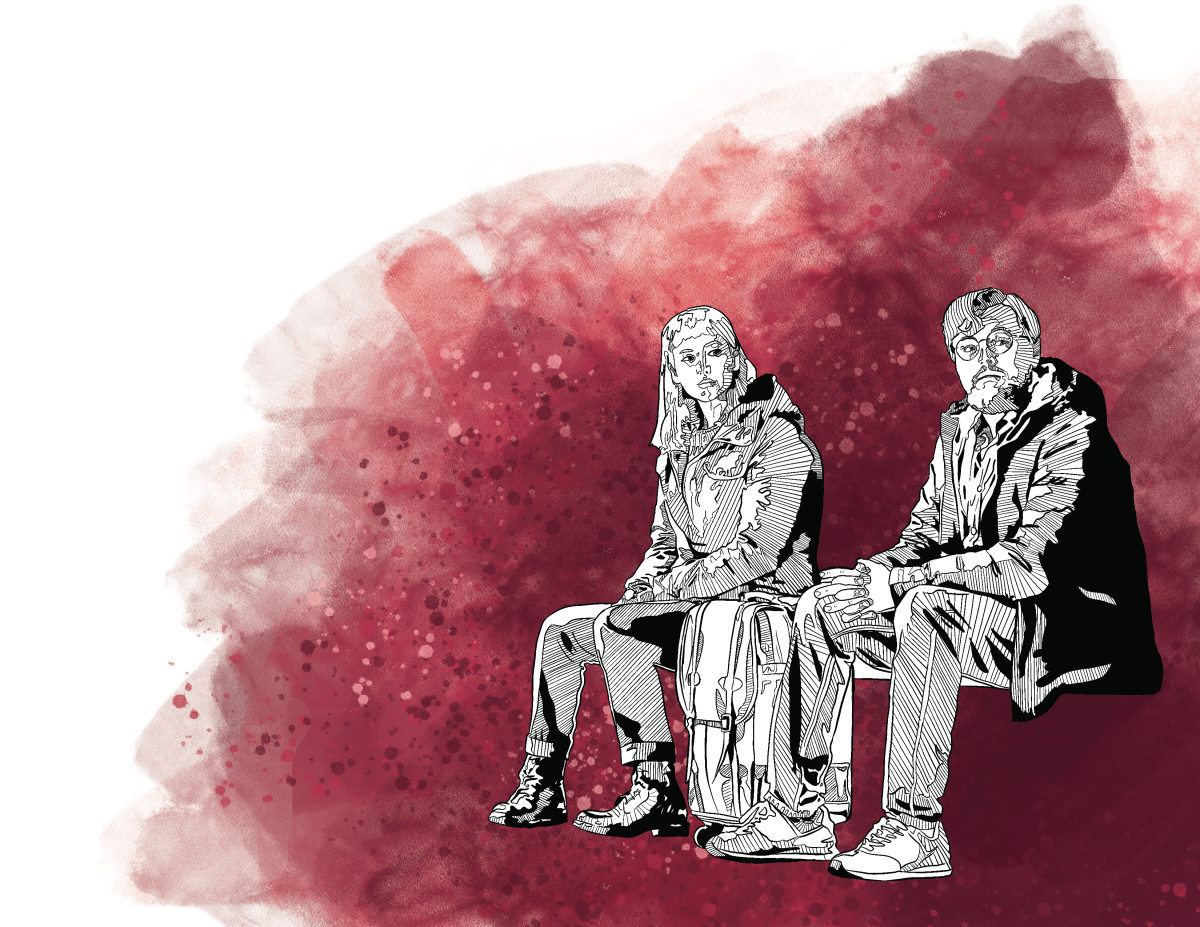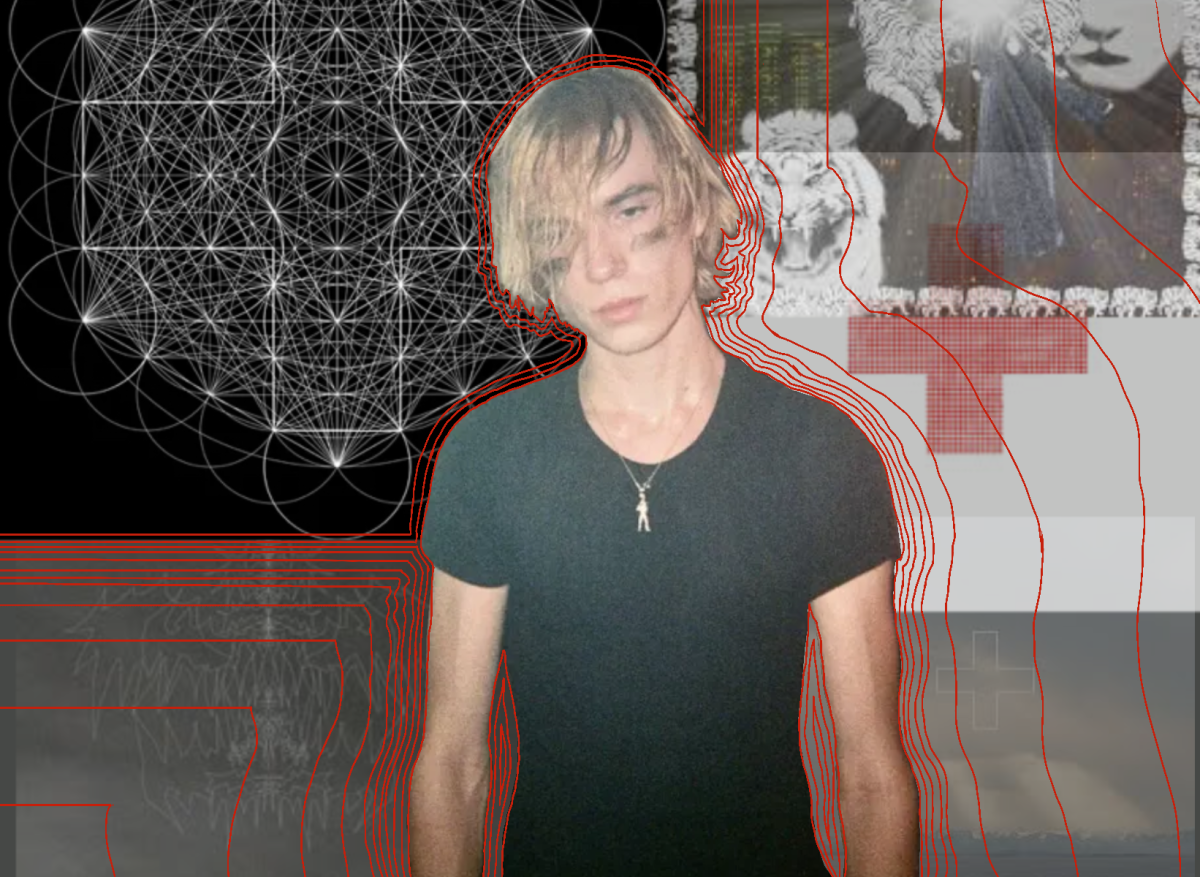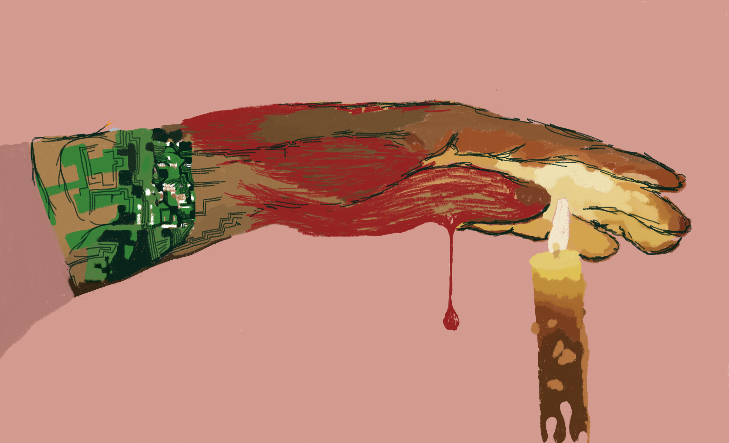Editor’s Note: This review contains heavy spoilers for “Don’t Look Up.”
Feeling ambivalent about “Don’t Look Up,” the latest political comedy-drama and Netflix blockbuster from director Adam McKay, is almost impossible. If it wasn’t obvious from the scathing reviews by critics and audiences alike as well as the equally-as-insufferable defenses, you either see the movie as a blessing or a curse.
On its surface, “Don’t Look Up” is a movie about two scientists (Leonardo DiCaprio and Jennifer Lawrence) who discover that a comet is about to strike and destroy all life on earth in about six months. From there, the almost 2 ½-hour film follows the scientists’ futile attempts at convincing a scandalous conservative president (Meryl Streep) and her corrupt yet incompetent administration, a vapid news and media industry that is too concerned about the latest pop culture drama as well as the unreceptive general public to do something about the incoming apocalypse.
Suffice to say, “Don’t Look Up,” is proud of wearing its politics on its sleeves. Fans (or enemies) of McKay probably got similar vibes to the director’s previous “hits” such as the 2008 financial crisis comedy-drama “The Big Short” and the Dick Cheney biopic “Vice.” Similarly, David Sirota, former advisor for the Bernie Sanders 2020 presidential campaign and editor-at-large for Jacobin magazine, co-produced the story for the film.
There’s a lot to dislike about this film. The editing is sloppy, its protagonists range from infidelity-driven corporate sellouts (DiCaprio) to angry “liberal snowflakes” (Lawrence, although both the movie and its audience are aware that this is the case). Its plot only really gets good by the last third of its bloated runtime, where the film finally eases up on its Twitter activism-esque dialogue for some brief flashes of humanity, the best example being the film’s handling of Timothée Chalamet’s character. There’s some god-awful cinematography, so bad that Twitter users who hated the movie are trolling McKay by replying to his tweets with the film’s bad shots. And as far as the dialogue goes? So ham-fisted it makes me crave hearing loss.
It’s also worth noting that this is a movie that pretends to care about the lives of the marginalized. As I mentioned above, we follow the lives of economically secure scientists as they try to convince the general American public, the media industry and U.S. officials to take the comet seriously before it nukes them. With the comet being an allegorical stand-in for climate change, sure, they’ll be affected for the worse by it in the near future, but nowhere in the same level as, for example, the migrant Latino worker in the farming industry, who is only shown for three seconds in a montage of people looking at the U.S. government launching a comet-nuking mission that ultimately falls flat (into the ocean).
This is perhaps my biggest critique of the “populist” messaging in “Don’t Look Up,” which director McKay himself said was deliberate during the film’s production. Most egregious is the clip of the Native American dancing to a backdrop of burning trees during the movie’s final moments, hammering down the racist message that Indigenous people are “one with nature” and not a complex social group, akin to the random animal clips juxtaposed throughout the nuking of the planet.
Dare I say, in its attempts to appeal to its audience’s guilts towards racial discrimination, “Don’t Look Up” comes off as bigoted by reinforcing the ideal that ethnic groups outside of the Western cultural stratus are unable to have agency in their lives or bring about change in society. They are, like animals, only included in the film to incite moral pity.
And let’s talk about the climate change allegory itself, because a comet just might be the worst possible candidate to represent the incoming apocalypse. As writer Jake Bittle puts it in his review of the film for The Baffler, “it is an apocalypse, to be sure, but one that takes place on timescales longer than a human life. It will split apart families, communities, nations, and force new social combinations we cannot yet imagine.” I’m genuinely convinced this movie’s depiction of the climate apocalypse set environmentalist activism back by decades.
But the biggest flaw in “Don’t Look Up” just might have to be its philosophy. In a futile effort to appeal to anyone left of the American right, McKay and Sirota serve a platter of platitudes and virtue signals for its progressive audience. Incompetent, Republican-coded president? We got it. People choosing to distract themselves of impending doom with silly entertainment instead of constant unhealthy doomposting? We got it. But what the writers fail to grasp is that their audience has been awake for a long time, that industrial society as it stands cannot effectively reverse the climate crisis without its proper death. “Don’t Look Up” is masturbatory, way too obsessed with congratulating itself for its (lack of) insight as it sows boring takes from 2020.
Well-meaning fans of this film, especially its political allies over at Jacobin, will argue that we need this too-obvious critique of the system to get society to change. We need a clip of Ariana Grande singing that we should’ve “listened to the goddamn qualified scientists.” But I’d like to argue that if our faith in changing society rests on a Netflix movie release, we should start treating the climate apocalypse as prophecy, not choice.














